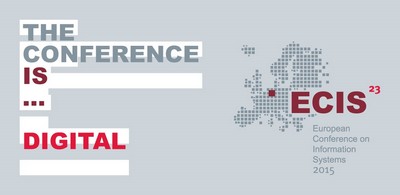Abstract
The subject of control is a major stream in information systems development (ISD) studies. It is a process in which controllers specify performance goals, evaluate the current performance of those over whom they have control, and initiate improvements when they observe a gap between the predefined goals and the actual performance level. Researchers have classified control into different types and have identified the critical determinants for selecting appropriate control mechanisms. We base this study on regulatory focus theory and argue that managers should also consider a team’s goal orientation in order to maximize the effect of control. This study attempts to understand 1) whether the goal orientation of the ISD project team (prevention-focused vs. promotion-focused) is associated with its performance index, and 2) whether those relationships are stronger when the appropriate control mechanism (specification explicitness, evaluation flexibility, and reward) is exercised. \ \ To answer these research questions, we propose a research model integrating organization control and regulatory focus theory to explain ISD project performance (product performance, process performance, and teamwork satisfaction). Specific hypotheses are developed and will be tested using a field survey from ISD project managers and team members. \
Recommended Citation
Hung, YuWen and Hsu, Shih-Chieh, "Collective Regulatory Focus and Control Mechanisms: The Impact of Regulatory Fit on ISD Project Performance" (2015). ECIS 2015 Research-in-Progress Papers. Paper 37.
ISBN 978-3-00-050284-2
https://aisel.aisnet.org/ecis2015_rip/37


